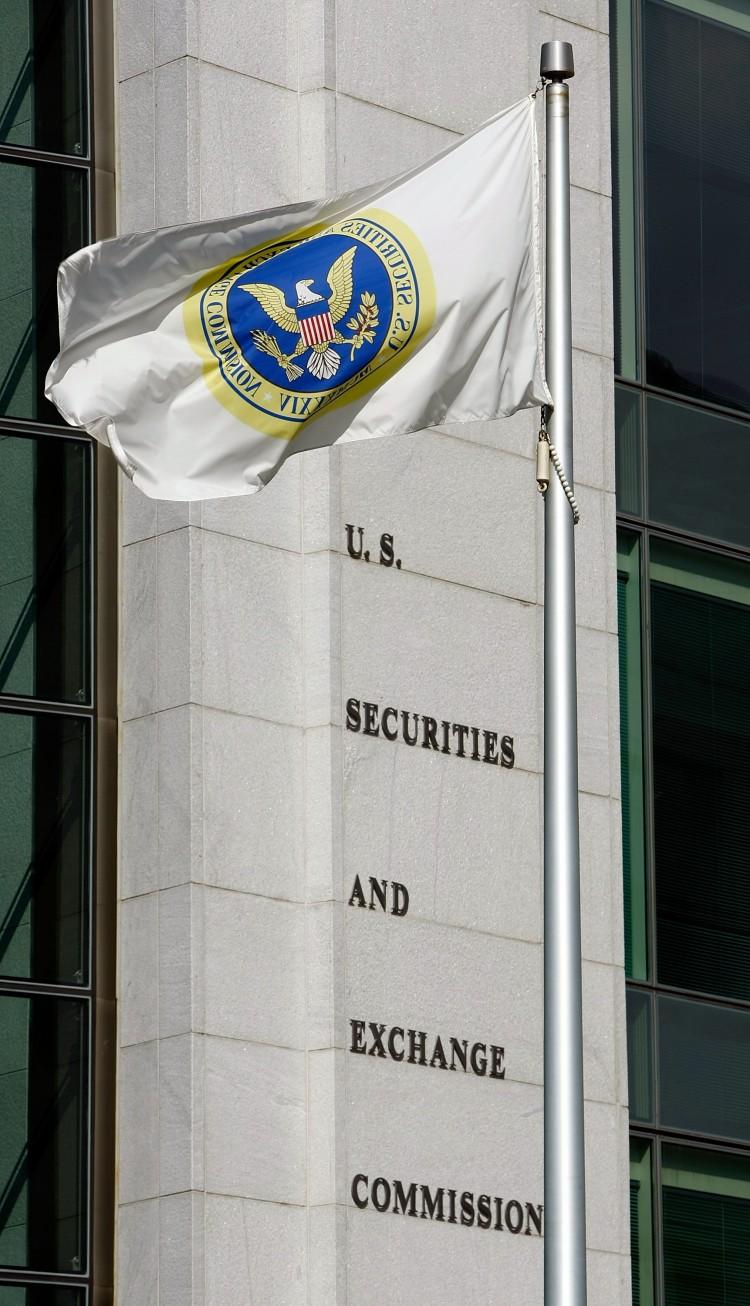
SEC SUSPENDS TRADING: A flag flies in the wind in front of the U.S. Securities and Exchange Commission building in Washington, DC in this file photo. In 2011, the SEC suspended trading in a number of Chinese Reverse Merger companies for misstatements in public filings. Chip Somodevilla/Getty Images
Some Chinese firms have seen the opportunity to take part in stock offerings on international exchanges as a chance to make quick profits through shortcuts and tricks used to fool investors. The latest trick is that a Chinese operating company merges with an existing U.S. shell company that has been legitimately set up and gone public for access to the investment community. This is called a reverse merger.




